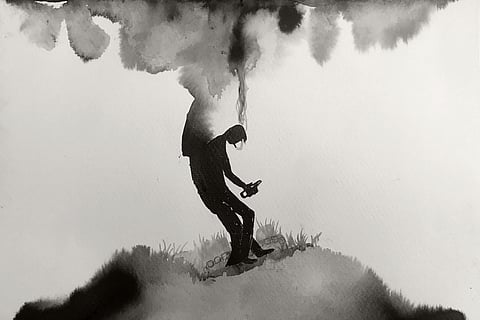Illustration: Arati Kumar-Rao
A mild winter morning in Karachi; smoky fog, smog. It makes Wasif's eyes water a little and his nostrils prickle. Irfan meets him on the broken footpath, dressed, as Wasif is, in school uniform – a white shirt, greying at the cuffs and collar, and badly ironed trousers in a drab brown colour. Both of them wear backpacks.
With a flourish, Wasif takes out the cigarette packet stashed in his trouser pocket. He runs his fingers through his hair and lights a precious, forbidden cigarette. He takes a long drag and feels manly. Then, with a munificent air, he hands Irfan the cigarette.

